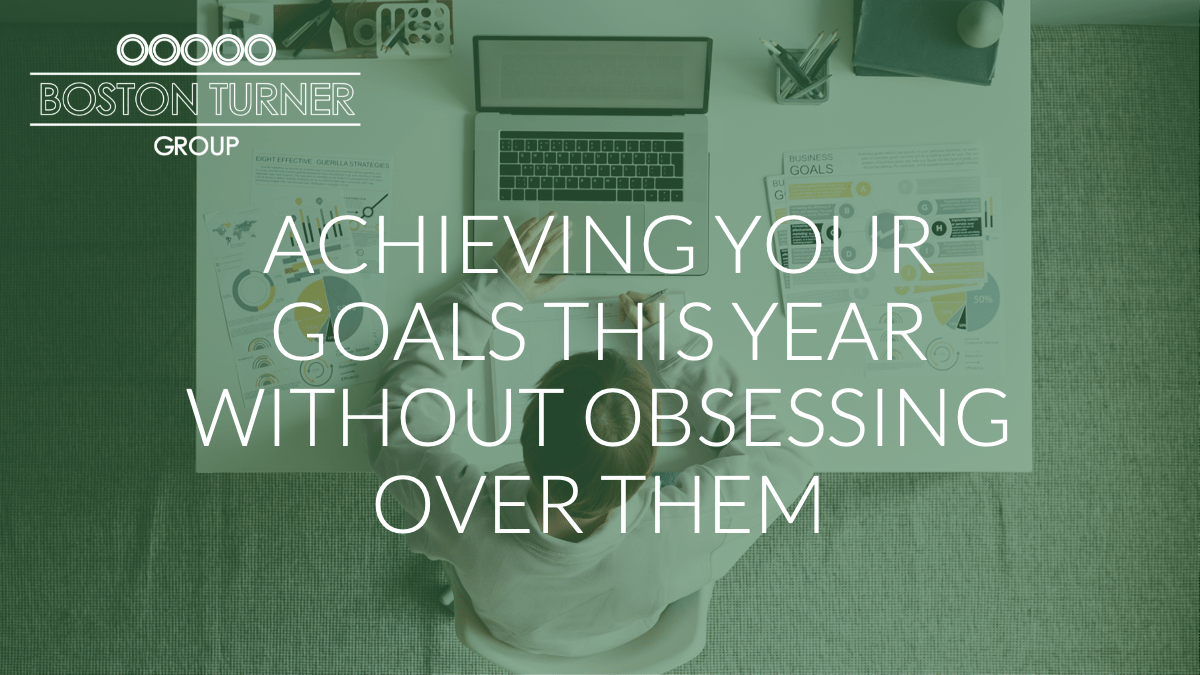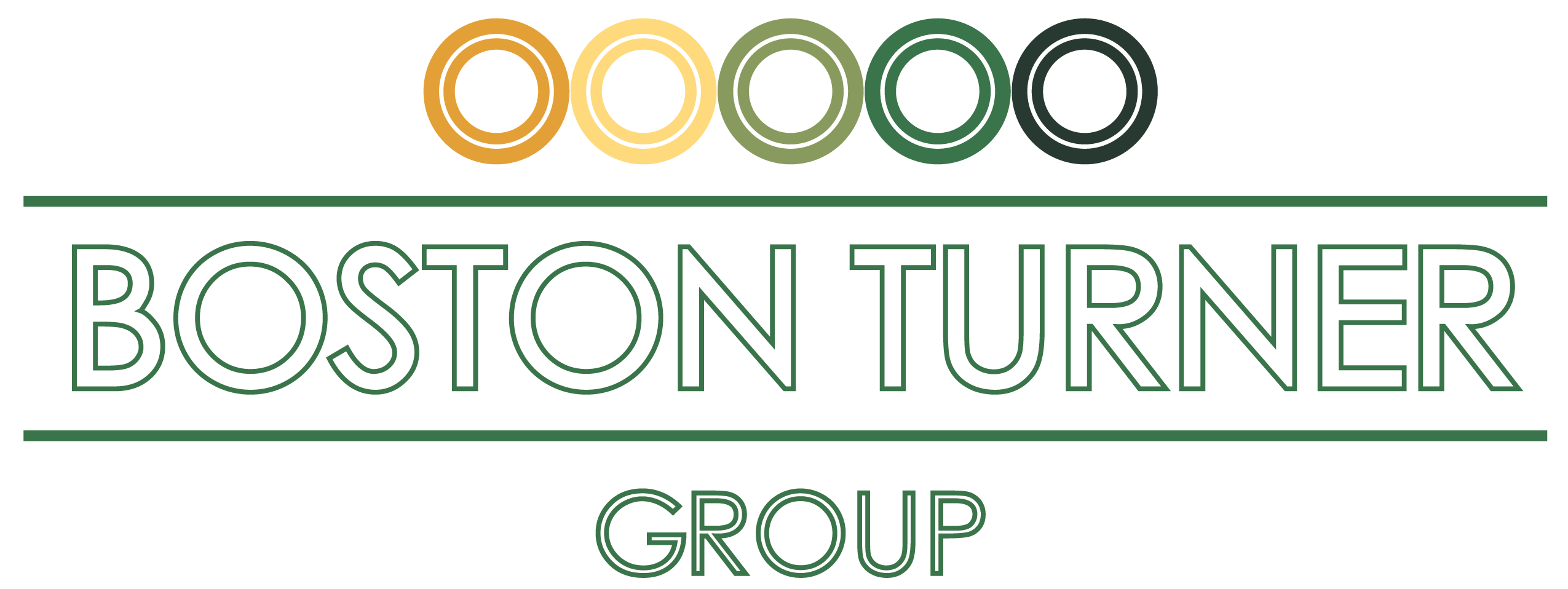Family businesses are great. You get to do what you love surrounded by the people…

Achieving Your Goals This Year Without Obsessing Over Them
Are you going to crush it this year? Or are you going to crush yourself and everyone around you?
The start of a new year is always an exciting time for most entrepreneurs and business drivers, as it provides an opportunity for personal reflection and goal setting. Putting meaningful goals in place can often help us stay focused and motivated throughout the year. Setting a clear path can also provide direction and help us make progress towards our ideal outcomes. By implementing goals, we can acquire knowledge and skills, build on our talents, and increase our self-esteem
However, it is important to recognize that goal setting can become a double-edged sword if we are not mindful of the successes and risks associated with obsessing over goals. Balancing progress with perspective can help ensure that our focus remains productive rather than becoming all-consuming.
Obsession Usually Leads to Failure
Obsessing over goals can have serious negative consequences in a person’s life if they become too fixated on achieving them. This behavior can lead to anxiety, stress, and even depression when the goal isn’t reached or takes longer than expected to accomplish. It is often difficult for people to recognize when their drive for success has become unhealthy, and it is important to take steps to ensure that goals are not the sole focus of one’s life.
One of the most interesting aspects of my life as a business growth consultant is that I meet many energetic and visionary leaders and get a peek into their personal lives. So often with entrepreneurs and company founders, their personal lives and business lives intertwine. Family members are also drivers in the company and that can magnify the impact of over-obsession on company goals when it becomes hard to turn off your professional mode when you’re hanging out with friends and family.
As an example of how obsessing over goals can actually hurt your progress, I had two clients in the last two years ask for my help in stopping drinking. Disclaimer: I am not a trained addiction specialist by any means, but these two clients knew that I gave up drinking almost five years ago and asked for any guidance I could give (you can read more about my reasons here). One person was successful, the other was not. The successful quitter reoriented their thinking and their life in a way that allowed them to develop habits to replace drinking without having to think too much about it. The unsuccessful quitter worried about failure at every turn and constantly thought about not drinking. Which meant they were constantly thinking about drinking. The successful quitter didn’t feel like he was missing anything while the unsuccessful quitter had FOMO like mad because it was all they thought about for 104 days, which is how long they made it before relapsing. I realize I’m oversimplifying both of their situations and there are many more complications with these kinds of things, but it underscores the point I’m trying to make that if you want to achieve your goals while staying healthy and not becoming an obnoxious broken record to everyone around you, you need to build support systems and balance into your goal setting.
Identifying What Matters Most to You
Now, I don’t know about you, but I’m a lot more likely to achieve goals that are important and interesting. To achieve a healthy balance between goals and life, it is beneficial to identify what matters most in all aspects of your life, such as relationships, career, self-care, endeavors, etc., and prioritize them accordingly. This will help to ensure that you are making progress towards your goals without sacrificing other important areas in your life.
This is why “Ideals,” is the first and most foundational element of our Enterprise Velocity system for creating new business growth. You need those touchstones for behavior and success first before you can make real progress.
When creating your goals — both personal and professional — it is important to take a step back and assess what matters most to you in life. Keeping your purpose and intentions top of mind when setting goals can help ensure that they align with what is meaningful for you. Once these have been identified, it is important to prioritize your goals accordingly. This may mean adjusting what you are focusing on or taking a step back to focus on one goal at a time.
Every person and every company we work with is different in how they think about priorities. But here are some areas we workshop with entrepreneurs and their leadership teams in our Enterprise Velocity program:
- What are your core values and passions? How would your best employees answer this question?
- Do the goals that you’ve set speak to you on a personal level? Can you visualize where you’ll be at the end of the year if you achieve your goals?
- How does your goal fit into your Impossible Dream — the big reason why you started your company in the first place?
- Is this a goal you must achieve or is it something that you think others expect of you, or something you think similar companies “just do?”
- We often consider business goals in terms of our financial success — have you looked at them through the lens of your family life, health and psychological well-being?
- Can this goal be broken down into meaningful steps and milestones throughout the year so you can maintain momentum?
Aiming For Progress Rather Than Perfection
Aiming for progress rather than perfection is key to having a successful and fulfilling experience with your goals this year. Seeking perfection can set an unrealistic bar that could be difficult to reach, leaving you feeling frustrated and overwhelmed. Setting smaller accomplishments and milestones along the way to your ultimate goal helps keep you motivated, as it allows you to view your progress in incremental successes rather than one grand triumph. Celebrating even small victories also helps maintain your emotional commitment to responding and adjusting to challenges that arise on your journey towards achieving potentially larger goals. When seeking progress over perfection, it’s important to set achievable goals that allow you to build upon past successes while still pushing yourself towards something greater in the future.
It can be easy to become overwhelmed by our goals as we strive for perfection. To prevent this, it is important to take a balanced approach while setting goals and to remember that progress is more important than perfection. It is okay to establish high standards for ourselves, but it’s also important to recognize when we are pushing too far beyond our limits.
Create Intentional and Mindful Practices Around Your Goal Setting
Again, the biggest difference I see in my clients who are successful in their goals is that they have reoriented their daily practices, thinking and systems to support their goals. They don’t have to obsess because they put a system of ideals, values, goals, OKRs, metrics, meetings and accountability in place.
Our Enterprise Velocity program coaches your entire team in managing these achievement systems. But if you’re not ready for that or just want some personal ways to get started, here are some important elements of my personal goal framework that have helped me immensely over my many trips around the sun.
First, get as much out of your head as you can and put it down on paper, or Evernote or a to-do list. If you try to keep your goals and progress in your head, you will end up in an endless loop of worrying, obsessing and waking up in the middle of the night wondering if you could have done more. If it’s written down along with the step you need for progress, you can relax and just start punching things off your list.
I personally like and recommend Getting Things Done. We all have ideas and inputs from many areas — customers, emails, LinkedIn, calls, partners — and the GTD system is a great way to make sure you collect all those ideas, inputs, to-dos and steps and keep track of their progress. I also use Appigo’s To-Do cloud version which allows me to keep my GTD system in one place accessible from my iPhone or web browser. I’m also a fan of Rocketbook and they have released a Panda Planner version which is helpful to get out of your day to day space each week and morning to refocus and make sure you stay on track. There’s something about writing with a pen that helps my brain more than typing, so I like the practice of writing in my Rocketbook. So you know, I am in no way compensated by any of these businesses, I just use and recommend them.
I’m a big fan of contemplative prayer, meditation and journaling. I’m always running at breakneck speed and it’s important to stay grounded. I’m spotty on my discipline of morning pages, but I find it helpful when I do it. It’s kind of like emptying my brain’s wastebasket every morning. We don’t always achieve our goals. That can set off a lot of panic and emotional alarms, especially for A-type personalities that usually become entrepreneurs. Mindfulness reminds you that those emotions are just warning lights on your dashboard, and you can stay present in the moment. It seems paradoxical yet staying in the present so you can achieve small steps is what makes you successful in the future.
Here’s to a great new year for all of us. It’s okay to set high standards for yourself while still having realistic expectations. By finding the balance between these two things and putting systems in place, you will find success in achieving your goals in 2023.



